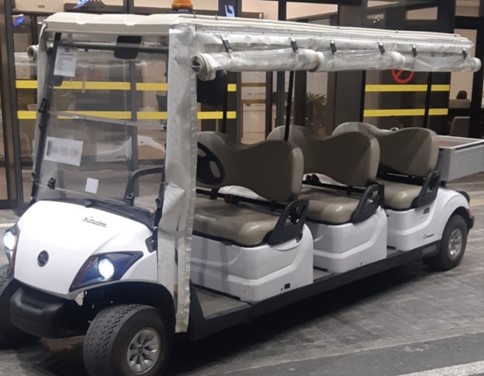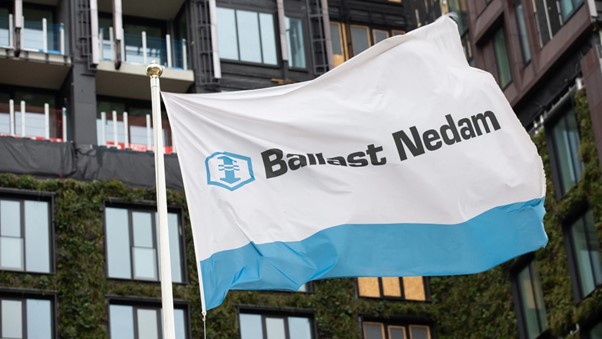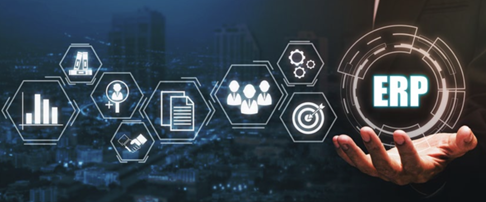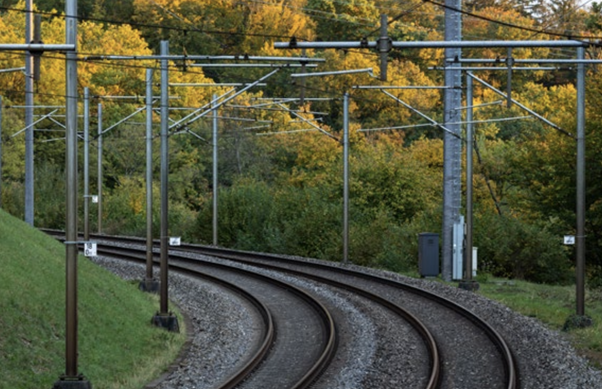RÖNESANS HOLDING CONTINUES TO FOCUS ON SUSTAINABILITY STRATEGIES
As a leading international player focussing on sustainability strategies, Rönesans Holding continues to generate considerable value for its internal and external stakeholders.Rönesans Holding, with its global operations, adeptly responds to the swift shifts in the industry through an innovative and technology focussed approach, efficiently converting its extensive potential into exceptional performance.
"We are working diligently and intensively to implement the goals we have planned in the sustainability field included in our report and to increase further the economic, environmental, and social value we produce and share.”
İpek Ilıcak Kayaalp
Chair of the Board
General Headings from the Sustainability Report
- In order to achieve "Goal 17: Partnerships for the Goals," which aims to strengthen international collaboration and promote joint efforts in sectors such as finance, technology, and trade, Rönesans Holding became a member of the Business Council for Sustainable Development (BCSD Turkey) on June 23, 2023, with the objective of enhancing sustainability collaborations.
- In 2022, the total amount of waste decreased by 47% compared to the previous year, reaching half of its previous volume.
- In 2022, the combined Scope 1 and Scope 2 greenhouse gas emissions from the operational activities of Rönesans Holding and its group companies were reduced by 34.41% compared to the previous year.
- The goal is to increase the percentage of women on the Board of Directors to 50% by the year 2040.
- The aim is to utilize 100% renewable energy by the year 2040.
- Within the Sustainability Committee of Rönesans Holding, the Gender Equality sub-working group takes action by evaluating data and strategies at the Executive Management level. Efforts are ongoing to increase female employment and the proportion of women in decision-making positions within the Holding company and its subsidiaries.
- Rönesans continues implementing the 7 WEPs (Women's Empowerment Principles) at the holding and group company levels.
Combating Climate Change
- Rönesans Holding aims to reduce Scope 1 and Scope 2 greenhouse gas emissions by 55% by 2030 compared to 2022. By 2040, Rönesans aspires to function as a carbon-neutral holding company in all projects and facilities it owns or operates.
- The Climate Change sub-working group of the Rönesans Holding Sustainability Committee takes action by evaluating data and strategies at the Executive Management level.
- Rönesans anticipates that the failure of ongoing global consensus and action efforts in climate action would result in destructive and irreversible consequences for humanity and the global economy. In this context, the holding company commits to strengthening both multi-stakeholder collaboration and its activities throughout the economic cycle that contribute positively to climate action. Before projects commence, Rönesans conducts environmental impact assessments to identify climate-related risks and opportunities and develops eco-friendly projects that balance natural resource consumption at low levels. Rönesans diversifies its contributions to climate action by substantially investing in renewable energy.
- Shared area emissions in shopping malls have been reduced by 40%. As a result of carbon reduction efforts regarding shopping mall operations, emissions from shared area consumption have decreased by 40% since 2017 and by 9% since 2022.
- In 2022, budgeted cost-saving items were implemented with the arrival of investments.
- The conversion to LED lighting initiated in 2021 was 100% completed in 2022.
- In 2022, negotiations were held with Rönesans Enerji to establish a framework agreement for the implementation of a program and related investment aimed at meeting electricity consumption through green energy.
- Within this framework, Rönesans Holding established its Climate Change Governance Strategies.
Sustainability in Water Management
- Rönesans assesses the water risk in regions where its facilities, construction sites, and investments are located to minimize potential negative impacts on its processes. The company implements measures to mitigate potential disruptions in water resources in the medium and long term. Furthermore, it develops solutions for its projects and utilizes the most advanced technologies in its industrial projects to ensure water efficiency.
- Given the limited availability of natural resources, increasing demand, overconsumption, and environmental impacts, natural resource management regarding water, energy, minerals, and biological resources is among Rönesans' top priorities. The company prioritizes natural resource efficiency in its projects, investments, and service facilities, integrating this issue into its policies and business processes.
- In its green building projects, Rönesans Holding goes beyond the efficient use of water with gray, blue, and green water components, contributing to reducing consumers' water footprint.
- Biological wastewater treatment methods are also employed for domestic wastewater treatment plants. Wastewater is discharged and/or reused in compliance with environmental limits.
- In 2023, Rönesans Holding formulated plans to calculate its water footprint and conduct monitoring studies according to the ISO 14046 Water Footprint Verification.
- Rönesans Holding's Amsterdam-based company, Ballast Nedam, equipped the Jonas Project's special piers with underwater artificial mussel reefs, providing an innovative solution that improves water quality and diversifies the underwater environment. Debris was employed to create a suitable habitat for the Chabot Bullhead, a rare fish species, and add more diversity to the underwater ecosystem.
- The Jonas project was implemented with 97% recycled materials.
- Infrastructure models were created using 3D design programs to enable the sensitive and lossless collection and storage of rainwater. Based on the conducted studies, rainwater is collected in strategically positioned tanks, where the stored water is treated before being redirected to the garden irrigation system. This designed system serves as a key parameter for LEED Gold certification.
- Siphonic systems stand out with their high level of technology when it comes to rainwater drainage. The system has the capability to use very low pipe slopes and small pipe diameters, making building drainage solutions more flexible. Siphonic systems are particularly beneficial in places like hospitals where maintaining hygienic conditions is crucial. They make applying architectural and static details easier without requiring water pipes to pass through the premises, thus reducing water flow and leakage problems during operation.
- The water treatment complex built by Ballast Nedam, a subsidiary of Rönesans Holding, in Hemmatagama, Sri Lanka, will provide clean drinking water to 17,000 families. This project, which has reached its final stage, has a water treatment capacity of 21,000 m³ per day.
Sustainable Design

We continue to take pioneering steps when it comes to innovation by shaping the future with our designs today. Some of the sustainable technologies we used in 2022 include:
Tri-generation: A revolutionary energy center implemented in city hospitals for generating electricity, heating, and ventilation! We are both environmentally conscious and successful at keeping costs at a minimum.
Garden Irrigation with Rainwater: We collect and treat before using rainwater to irrigate our gardens with 3D design programs and smart storage. Our future is blossoming with these initiatives.
Solar Energy Storage: By harnessing daylight and extending it into the night, we not only efficiently store energy but also illuminate our surroundings. A smart and innovative use of energy.
Siphonic Systems: We address drainage issues in hygienic spaces through innovative piping systems. In short, we effectively bring architecture and technology together.
Electric Vehicles: We opt for electric alternatives for all hospital-related uses, including transport vehicles, to reduce our carbon footprint.
Sustainability in International Engineering

- Focus: Ballast Nedam is executing the Shell Red2Green factory project in Rotterdam, which will produce biofuel for the aviation industry.
- Why is it important? With this project, Ballast Nedam is gearing up to meet international emission reduction targets.
- Other international projects: You can access Ballast Nedam's projects and details by clicking here through the 2022 reports.
Use of Data for Sustainability

- About: In 2022, Rönesans Holding transitioned to the ERP-Enterprise Resource Planning Program.
- Goal: To identify gaps in the process and data flows with minimal intervention to the current ways of working of the groups, ensuring that the outcomes are consolidated in either ERP or non-ERP systems, and to enable reporting of the executive management's needs through Business Intelligence Executive Summary Reports.
- First: Rönesans Holding's S/4 HANA Transition Project is the most comprehensive ERP project conducted in Türkiye.
Sustainability in Transportation

- What is it? The MAOG (Mersin, Adana, Osmaniye, Gaziantep) project is a 280 km high-speed railway project designed to meet high environmental and social standards.
- Why is it important? The MAOG High-Speed Railway Project is structured to comply with all applicable national regulations, transportation strategies, as well as creditors’ environmental and social requirements.
- ESIA: The MAOG High-Speed Railway Project was developed in compliance with the Environmental and Social Impact Assessment (ESIA), adhering to the IFC's Performance Standards on Environmental and Social Sustainability and the Equator Principles (EPs).
- Green Loan: The MAOG High-Speed Railway Project aligns with EU taxonomy and green loan principles.
Equality of Opportunity at Rönesans Holding

- Focus: All Rönesans Holding employees are unified in their commitment to fostering a work environment that provides equal opportunities for all and collaboratively works towards achieving common objectives.
- 2016: Rönesans Holding joined the global initiative by supporting the WEPs on February 18, 2016. Rönesans Holding has internalized and is implementing the seven principles with the aim of empowering women across all sectors and levels.
- What are WEPs?: The Women's Empowerment Principles (WEPs) is a joint initiative of the UN Entity for Gender Equality, the Empowerment of Women (UNWomen), and the UN Global Compact (UNGC).
Rönesans Holding by Numbers
Notable numbers in Rönesans Holding’s sustainability approach:- 13+ | LEED-certified buildings owned and/or operated to date
- 9+ | BREEAM-certified constructed buildings
- 12+ | Shopping malls with electric vehicle charging stations
- 25+ | Zero Waste Certificates in Operational Services: 12 Shopping Malls, 5 City Hospitals, 6 Hydroelectric Power Plants, and 2 Head Office Buildings in Türkiye
- 9% | A goal set to reduce CO2 emissions in the common areas of shopping malls by 9% in 2023 compared to 2022.
- 40% | Total carbon emissions in the common areas of shopping mall operations were reduced by 40% in 2022 compared to 2017.
- 2040 | Besides Ballast Nedam’s 2030 carbon-neutral goal, an energy-neutral goal has been set for 2040.





